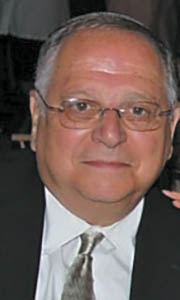


Day school education in America is an evolving revolution. In the early 20th century there were very few schools offering limudei kodesh and general studies. Children of immigrants attended cheder, but only after regular public school classes. Following World War II the growth of day schools became exponential, especially due to the efforts of individuals such as Rabbi Joseph Kaminetsky, a”h, and Torah UMesorah. Today there are more children studying Torah than at any other time in Jewish history.
Most of the mid-20th century families who sent their children to Orthodox day schools and yeshivot were certainly Orthodox in practice, affiliation and outlook (hashkafah). They davened, bentched, were shomer Shabbat, kept kosher and attended shiurim. Orthodox baby boomers who sent their children to day schools by and large also fit this profile. Recently a number of surveys have tabulated the level of observance of contemporary day school graduates 5, 10 and 15 years after they graduate. There’s some good news and some bad news. You can Google the results.
I am not a statistician or a sociologist. I can only report on what I see and experience in my community and in my travels. There is a great deal of discussion today about Modern Orthodoxy and Open Orthodoxy. My concern is not so philosophical or theoretical. I am very worried about the subgroup called modern Orthodox with a small “m” that I have observed in the past 25 years or so. I am a strong believer in the maxim that Judaism is caught more than it is taught. All of our schools teach how to act as a Jew and even how to think as a Jew. Parents have gone through the same schooling—but too often the schooling hasn’t gone through them. I am noticing families affiliated with Orthodox synagogues and Orthodox day schools, yet their behavior and attitudes belie this affiliation.
This subgroup seems to be growing. I do not refer to those families where parents walk the walk as well as talk the talk. I am concerned about those parents and the children who follow their lead where they can be categorized as Orthodox by convenience. They attend Orthodox synagogues and Orthodox day schools because that’s how they were brought up. They purchase only glatt kosher food for the home. They even put up a sukka and use shmura matza at the seder. Yet you rarely, if ever, see them at minyan during the week, they stroll into shul sometime during Torah reading, the women often come in flip flops and the men hardly ever come back for Shabbat mincha. On Shabbat afternoon, they dress for the beach or the basketball court. Shabbat swim parties occur in some communities. When eating out, standards are relaxed, washing and bentching are often omitted, and watching sports trumps any serious learning. Is it any wonder then that the children will follow their parents’ lead? Texting on Shabbat is widespread as is often inappropriate attire when away from school. Tzittzit—fuggetaboutit.
Observe what goes on during Simchat Torah in many communities. See how our day school children behave during Yeshiva break in Florida and elsewhere. Listen to how they speak to or text each other. Watch what they watch on TV and listen to their music. Where did we go wrong? There’s Orthodox and Orthoprax. This group is neither. In the 60s when the first glatt kosher deli opened in the 42nd Street area to serve those Jews who were attending shows and movies that may not have been so kosher, there were many reactions to this development. Rabbi Israel Wohlgelernter, who now lives in Ramat Gan, wrote in Hamevaser that “A shatnez label in an Ivy League blazer does not ipso facto make you an Orthodox Jew.”
Fortunately this is a small subgroup, but I see it growing. I see it in the entitlements of young parents and in their often spoiled offspring. Ask any teacher and he/she will tell you that a child’s attitude mirrors the parents. This is apparent most blatantly at Jewish summer camps. Free from direct parental supervision a child’s true essence become manifest. Children no longer listen to authority figures. “If I don’t want to go swimming you can’t make me.” “I just want to play basketball.” “I don’t feel like davening.” “My parents pay your salary.” Unfortunately, the camps cravenly give in to this because many parents behave the same way and the camps need to fill the bunks. Despite scheduled visiting days, parents come whenever they want to visit, thus reinforcing in the child this sense of entitlement.
There was a time when parents and children would fear a teacher’s reprimand. Now the teacher as well as the principal is in trouble if a child is disciplined for acting out or otherwise misbehaving. And woe to the teacher who criticizes the child of a Board member. Sometimes the child himself will threaten the teacher!
A new scary wrinkle is the high proportion of children who are medicated. It’s not just ADD or ADHD anymore, but parents are giving their children growth hormones and puberty-delay drugs!
I don’t know where it comes from or how to stop it but this problem is real. Rabbis and school administrators need to acknowledge this problem and try to deal with it. Just as a parent must learn how to say no to a child, so too must those who deal with parents stand up to their misguided judgments and self-importance. Baruch Hashem there are many, many parents who bring up their children properly and with the correct Torah values. Unfortunately, there are growing numbers of children whose parents have yet to reach maturity, Jewishly or otherwise.
Rabbi Dr. Wallace Greene is a veteran Jewish educator and administrator. He is currently the Executive Director of the Shulamith School in Brooklyn, the oldest religious girls school in the US.
By Wallace Greene










